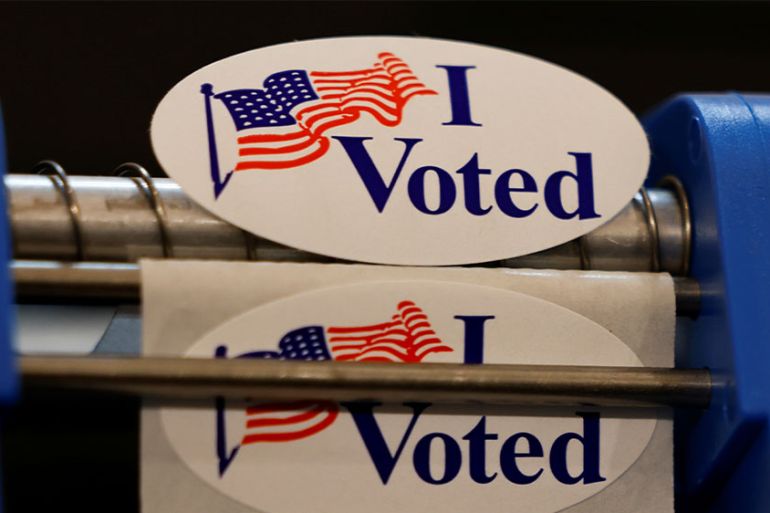Arizona voter limits remain as US Supreme Court to hear appeal
Arizona Republicans are fighting a lower court’s ruling that the contentious restrictions disproportionately burden Black, Hispanic and Native American voters.

The United States Supreme Court on Friday agreed to hear a challenge filed by Republicans in the state of Arizona, who are looking to uphold voting restrictions that a lower court deemed unlawful because they disproportionately burden Black, Hispanic and Native American voters.
The top court’s decision to hear the case means that the measures – which prohibit absentee ballot collection by third parties and the counting of ballots cast at the wrong polling precinct – will remain in place for the November 3 election.
Keep reading
list of 4 items‘Insurrection’ should bar Donald Trump from US presidency, lawyers argue
Ex-Proud Boys leader Joseph Biggs sentenced to 17 years for US Capitol riot
Trump indictments: Key court dates set in Georgia, federal election cases
In January, the San Francisco-based 9th US Circuit Court of Appeals invalidated the provisions for violating the Voting Rights Act, a 1965 US law that bars racial discrimination in voting.
Both measures will stay in place for the upcoming election because the 9th Circuit put its decision on hold pending Supreme Court action on the appeal filed by the state, Republican Arizona Attorney General Mark Brnovich and the state Republican Party.

Brnovich praised the court’s agreement to hear the appeal on Friday.
“As we contend with a politically polarised climate and battle a global pandemic, we must sustain the cornerstone of our government and ensure the true will of the electorate is heard,” he said.
The Arizona dispute involves a Republican-backed 2016 state law that made it a crime to hand someone else’s completed early ballot to election officials, with the exception of family members or caregivers.
Community activists sometimes engage in such ballot collection to facilitate voting and increase voter turnout. Critics call the practice ballot harvesting.
Ballot collection is legal in most states, with varying limitations. Twenty-six states allow voters to designate someone to return their ballot for them, 10 allow family members to do so, while the rest require voters to return their ballot or are silent on the issue.
The case also involves a long-standing state policy that discards provisional ballots cast in-person at a precinct other than the one to which a voter has been assigned. In some places, a voter’s precinct is not the closest precinct to their home.
Provisional ballots are those cast when a voter does not appear on that precinct’s voter rolls.

Nearly 30,000 out-of-precinct ballots were tossed out during the 2008, 2012 and 2016 presidential elections in Arizona, court filings said.
The Democratic National Committee and the Arizona Democratic Party sued the state’s Republican officials in 2016 over the provisions.
The 9th Circuit ruled that both Arizona voting measures had a discriminatory effect on racial minorities in violation of the Voting Rights Act.
The 9th Circuit further found that the ballot collection prohibition violated the US constitution’s 15th amendment, which prohibits racial discrimination in voting, noting that “false, race-based claims of ballot collection fraud” were used to convince Arizona legislators to pass the law.
The case, which began in 2016, is part of a wave of voting-related litigation ahead of the November election in which President Donald Trump is seeking a second term.
It also touches on issues that Trump has seized upon in his attacks on the integrity of the election, including voting by mail.
He and some fellow Republicans have asserted, without evidence, that a surge in mail-in voting amid the COVID-19 pandemic will lead to election fraud, which is exceptionally rare in the US.
